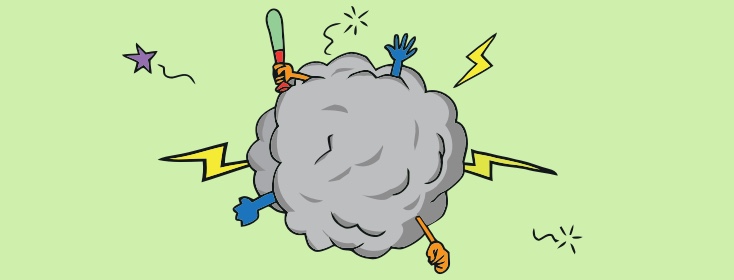Biological Warfare: Fighting Infection and MS
September can be a restorative, healing month during which daytime temperatures cool down enough to allow us to take outdoor walks again, something we avoided during the hot, humid summer months. Summer zapped our energy and endurance, hobbled our legs, and flooded our brains and limbs with marrow-deep weariness so extreme that making our morning coffee was the only activity we could manage before napping in front of the television for the rest of the day.
Looking forward to cooler weather to be more active
Every year I’ve eagerly anticipated fall and another chance to enjoy the outdoors again, pick up the hand weights, and begin afresh on the road to fitness and optimism, as the latter usually follows the former. Except for this year. It is already past the middle of September and I can’t seem to pry myself out of the Lay-Z-Boy or keep up with housework and laundry or keep myself as clean as I should, all because I’ve been fighting two recurring infections for several months now.
Battling multiple infections with MS
You wouldn’t think a sinus infection could so affect your legs and feet, seeing as they’re on opposite ends of your body. Or that a bladder infection might make your hands shake whenever you lift an object with any heft to it. Or, for that matter, that having one infection could cause you to develop another. Yet that is exactly what my primary care doctor told me had happened.
At first, my brain hurt trying to see a correlation between bladder infection and hand tremors as described above. But by reviewing how the immune system works, we can more easily follow the thread from infected organ to trembling hand.
When the body is dealing with infection and autoimmune disease
Multiple sclerosis develops as a result of an overactive immune system attacking the brain, optic nerve, and spine. The assault can be continuous, even when we feel okay. We aren’t in constant flares because some immune cells move in like Army medics to administer first aid on the battle field, thereby healing the inflammation before the damage can corrupt nerve signals and cause symptoms of a flare. But things can get complicated after that.1
Infections can make MS symptoms worse. And infections can sometimes affect other parts of the body. Immune cells, like soldiers, can be highly adaptable and effective in the short skirmishes, but if they seize a small region and stay there for a while, they could become drunken revelers or plunderers. In other words, your UTI symptoms went away all right—but your hands are now weak and shaky. Why can’t the brain call a cease fire on all fronts and order the cells to retreat?2,3
I’m still confused about the chain of command in the brain’s immune system, so I’m not sure who I should pester about this. Should I just go straight to the top brass? You know how much red tape there can be in these biological bureaucracies. I’ll let you know if I make any progress.

Join the conversation